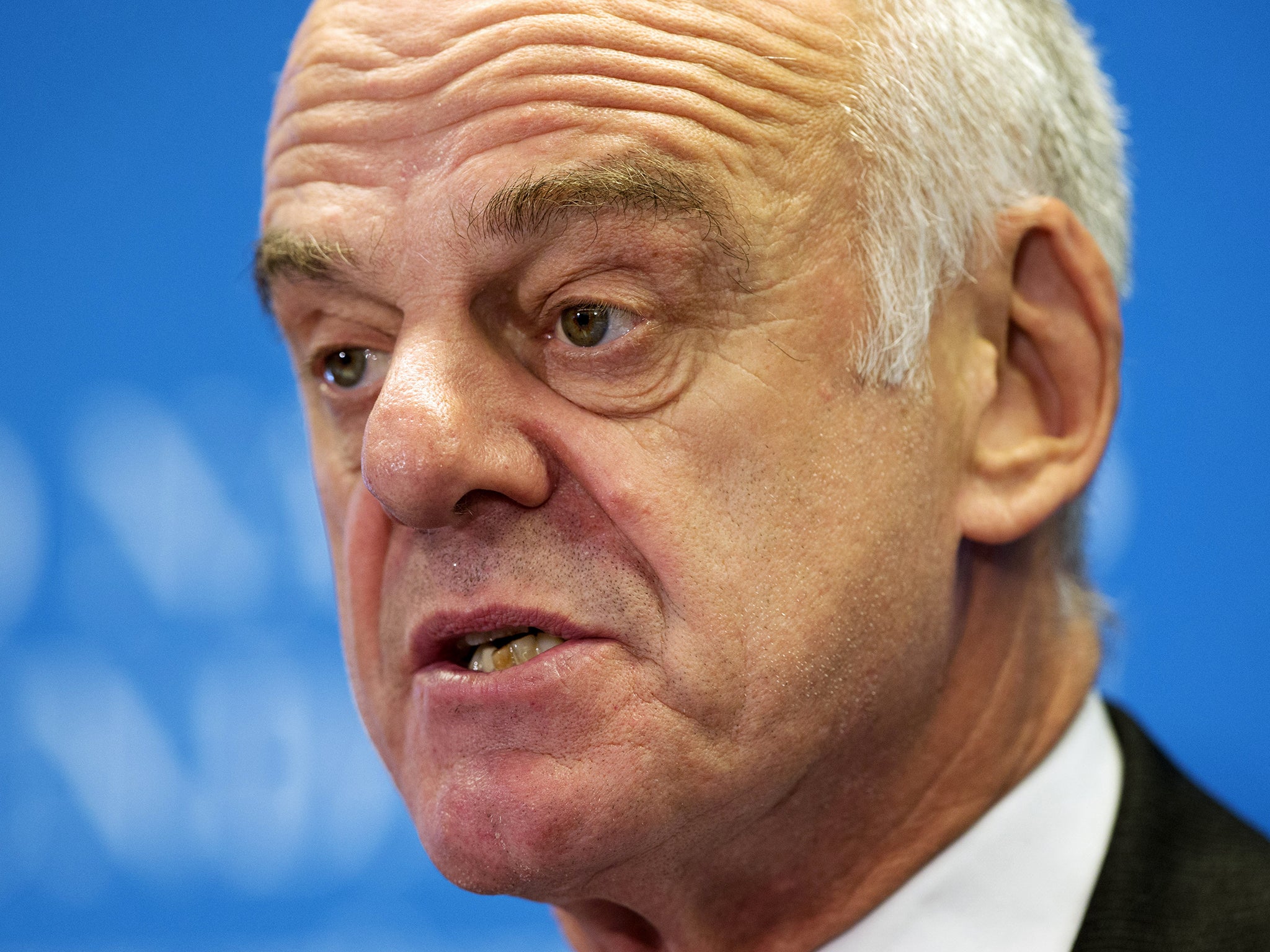World's extraordinary response is defeating Ebola, says UN chief
Dr Nabarro said a month ago that the number of Ebola cases was probably doubling every three to four weeks

Your support helps us to tell the story
From reproductive rights to climate change to Big Tech, The Independent is on the ground when the story is developing. Whether it's investigating the financials of Elon Musk's pro-Trump PAC or producing our latest documentary, 'The A Word', which shines a light on the American women fighting for reproductive rights, we know how important it is to parse out the facts from the messaging.
At such a critical moment in US history, we need reporters on the ground. Your donation allows us to keep sending journalists to speak to both sides of the story.
The Independent is trusted by Americans across the entire political spectrum. And unlike many other quality news outlets, we choose not to lock Americans out of our reporting and analysis with paywalls. We believe quality journalism should be available to everyone, paid for by those who can afford it.
Your support makes all the difference.The UN’s Ebola chief says an extraordinary global response over the past month has made him hopeful the outbreak could end in 2015, though he cautions that the fight to contain the disease is not even a quarter done.
“Until the last case of Ebola is under treatment, we have to stay on full alert,” said David Nabarro. “It’s still bad.”
Dr Nabarro said a month ago that the number of Ebola cases was probably doubling every three to four weeks. He warned then that without a mass global mobilisation, “the world will have to live with the Ebola virus forever” and that the response needed to be 20 times greater. But in the past four weeks, the rate of infections seems to be slowing in some parts of West Africa. In other hotspots, he says, it appears to be expanding.
On Wednesday, the World Health Organisation (WHO) reported a total of 13,042 cases of Ebola in West Africa and 4,818 deaths. The death toll has risen to 4,960, the WHO confirmed yesterday.
Dr Nabarro said there were five times the number of beds for treatment in the three hardest-hit countries than there were two months ago, which was helping to reduce cases, along with improving efforts to find people with infections and trace their contacts.
AP
Join our commenting forum
Join thought-provoking conversations, follow other Independent readers and see their replies
Comments